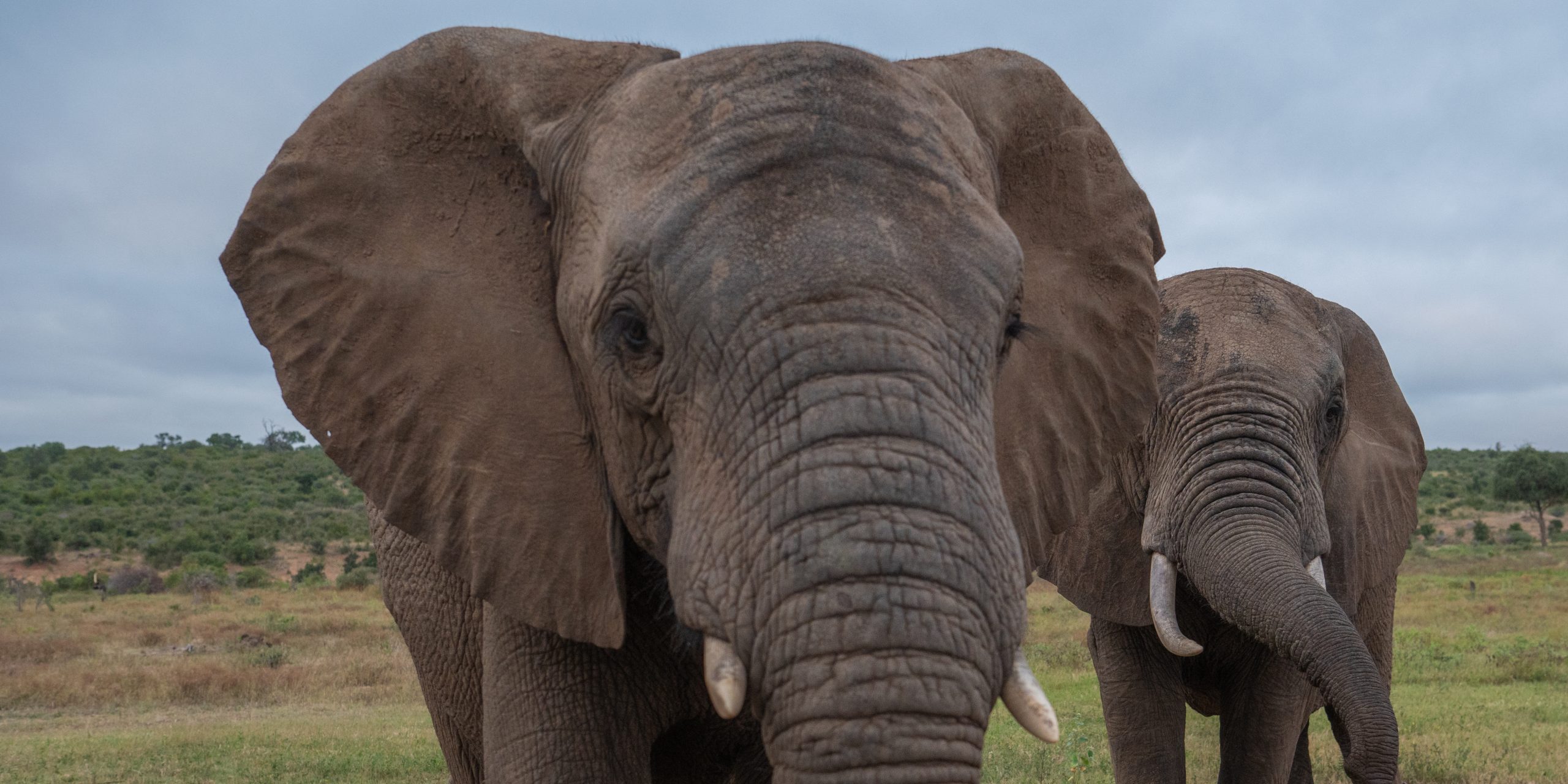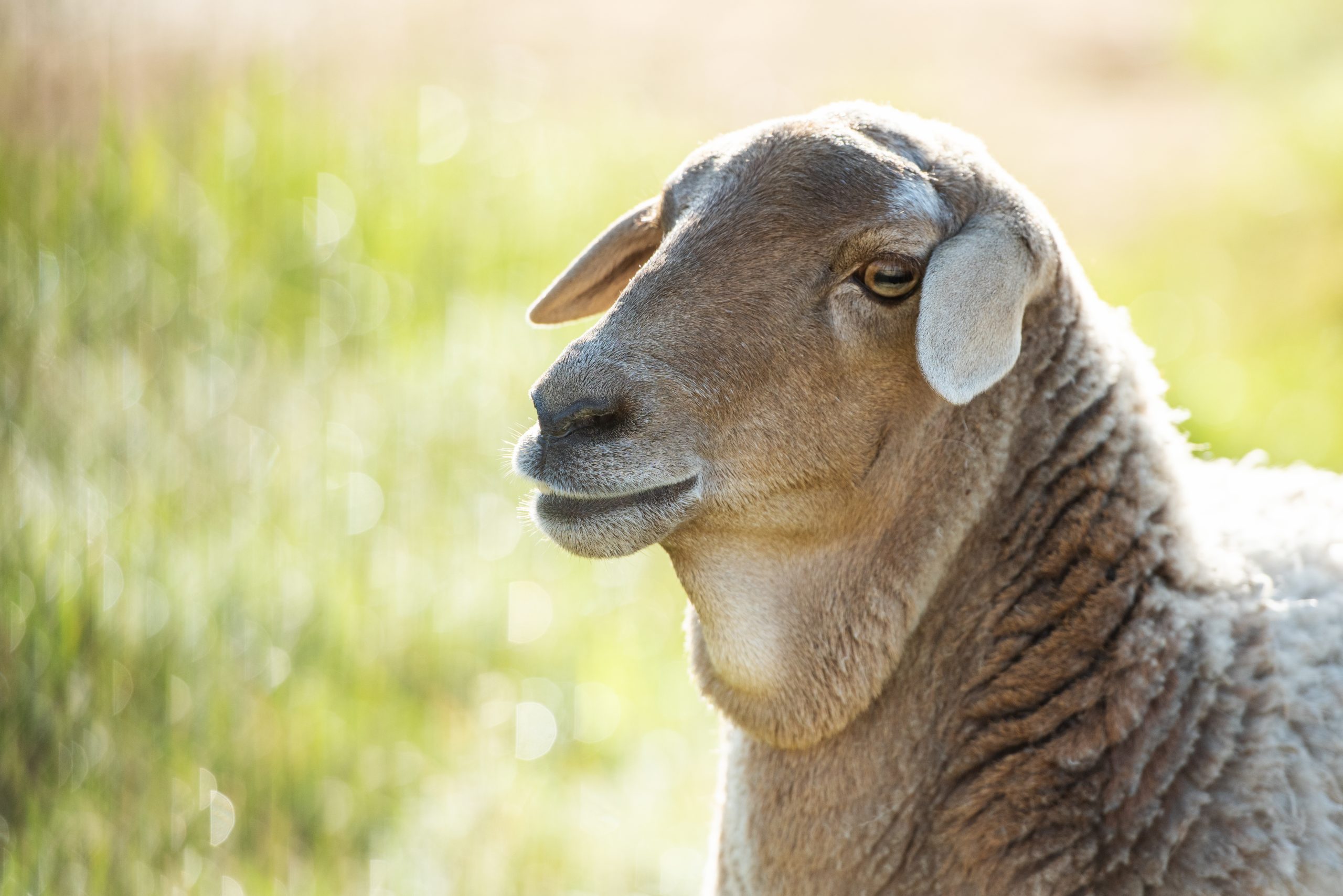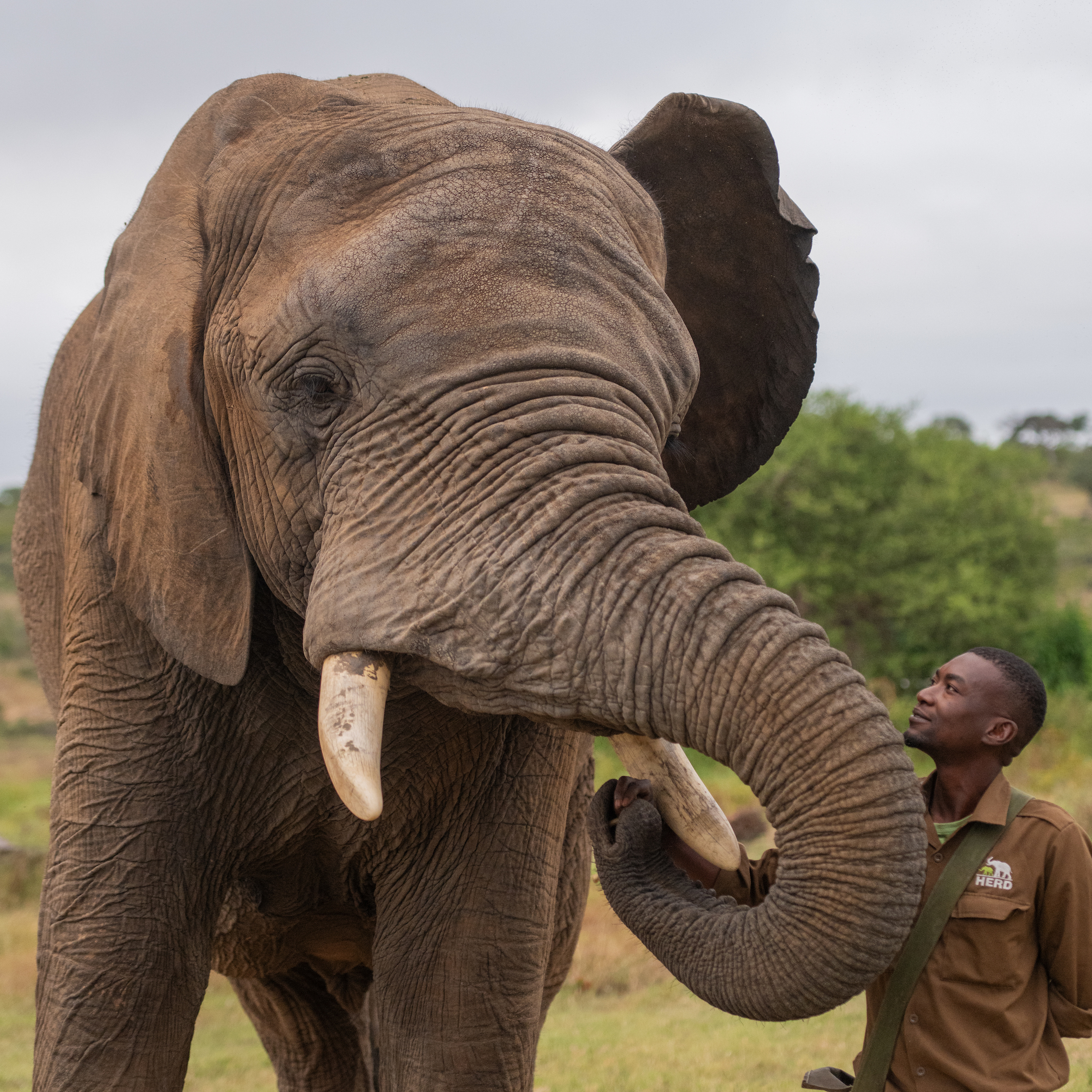A Tribite to Limpopo | A Letter from Adine
Limpopo was named after the mighty Limpopo River, which forms part of the border between South Africa, Botswana, and Zimbabwe. All elephants that came from Zimbabwe were named after rivers in the regions where they were found, and as the first baby born to our herd in 2006, it felt only fitting to continue the tradition. Tokwe’s firstborn was named after the Limpopo River in the province where we are situated. The name itself, rooted in African languages, refers to a river, but more poetically, it means “strong gushing waterfall.” Known for its rapids and dramatic drop in elevation as it enters Mozambique, the Limpopo River evokes strength, movement, and untamed beauty, qualities that would come to define the elephant who bore its name.



From the moment she arrived, Limpopo was adored. A beautiful baby girl, she captured hearts instantly. Paul Coetsee, the manager of the elephants at the time, was so proud of her that it felt as though she were his own granddaughter. Limpopo spent her early days nestled in the bana grass with her mother, Tokwe, where food was abundant and she didn’t need to walk miles with the herd. As she grew, she began joining Tokwe during feeding times, and I remember moments when little Limpopo would lie down beside us while my daughter Lente, just two years old then, stood nearby, nearly the same height.



I asked my son Xander to share how he perceived Limpopo, and his words were simple yet profound. He always believed Limpopo was the most intelligent elephant in the herd. Like her mother, Tokwe, she was vigilant, protective, and perceptive, always aware of her surroundings and quick to respond. To Xander, Limpopo wasn’t just smart, she was deeply intuitive. She had a quiet strength and a sharp mind that made her stand out, even among giants. His admiration for her reminds us that intelligence isn’t just about knowing, it’s about noticing, caring, and acting with purpose.



Limpopo loved to swim. She never missed a chance to dive into the waterhole, rolling around with her bum in the air, making waves and leading the charge with joyful abandon. She had a quirky habit of smelling the top of your head and, with surprising precision, would sometimes pull out just two hairs, a gentle reminder of her playful spirit and remarkable sensitivity.



She was an elephant of unmistakable presence, vibrant, determined, and always ready to step forward. Her energy filled every space she entered, and her eagerness to connect with others was undeniable. Limpopo had a deep desire to belong, to contribute, to be seen, and she pursued that with a bold sincerity that was uniquely hers.
She was seen as an elephant cow to follow in Tokwe’s footsteps, showing signs of becoming a future matriarch. Observant and strong-willed, she stayed close to her mother and shared a special bond with her younger sister Pisa, despite their contrasting personalities. Limpopo was confident, bold, and unrestrained, much like the river she was named after.



Her proactive nature meant she was rarely on the sidelines. If there was a moment to join or a connection to make, Limpopo was there, often before anyone else had noticed the opportunity. Her enthusiasm was her compass, guiding her toward elephants, people, and places where she felt she could make a difference.
When Khanyisa arrived, Limpopo was determined to be close to her. She tried everything to convince the young calf to suckle from her and accept her affection. Her efforts were heartfelt, though perhaps a little too intense for Khanyisa, who would often shy away. We did our best to support Limpopo through her frustration, recognizing that while her instincts were strong, she lacked some of the emotional nuance needed to care for a baby.



Her confidence could be both admirable and assertive, sometimes bordering on insistent. She had a knack for identifying openings in relationships and in group dynamics and wasn’t shy about stepping into them. While her intentions were rooted in a desire to be helpful and involved, her timing and methods occasionally caught others off guard. Yet beneath it all was a genuine longing: to be loved, to be valued, to be part of something bigger.
In that pursuit, Limpopo taught us something profound: that connection, even when imperfect, is always meaningful. She reminded us that the heart, in all its complexity, is always reaching out.
Her legacy is one of boldness, of effort, of showing up again and again with her whole self. And for that, we remember her with affection, with respect, and with gratitude.


In her memory, HERD is establishing a laboratory dedicated to monitoring elephant stress levels through regular faecal analysis. By combining these results with behavioral observations, we hope to better understand the emotional wellbeing of our herd and, as far as possible, prevent situations that could compromise the safety of both elephants and carers.
This initiative, the Laboratory in Memory of Limpopo, will be a daily reminder of the lives we lost in a single week. It is a call to learn, to grow, and to honour Limpopo not only through remembrance, but through meaningful change.
For more information about the project, please contact our PR and Fundraising Manager at pr@herd.org.za







Lieve De Mol
Those we love don't go away , they walk beside us every day , unseen , unheard but always near , still loved , still missed and very dear .
Theresa Leduc
My heart cracked in a trillion pieces with the news of the loss of the beloved carer, followed by a beloved elephant. I am so sorry this has happened and wish all my love and healing for you?
Ronne Gold
Please feature merchandise for Limpopo. I have a bag and mug for Fenya. several items featuring Ph.abeni and Spotty and now I would like something to remember Limpopo.. Thank you.